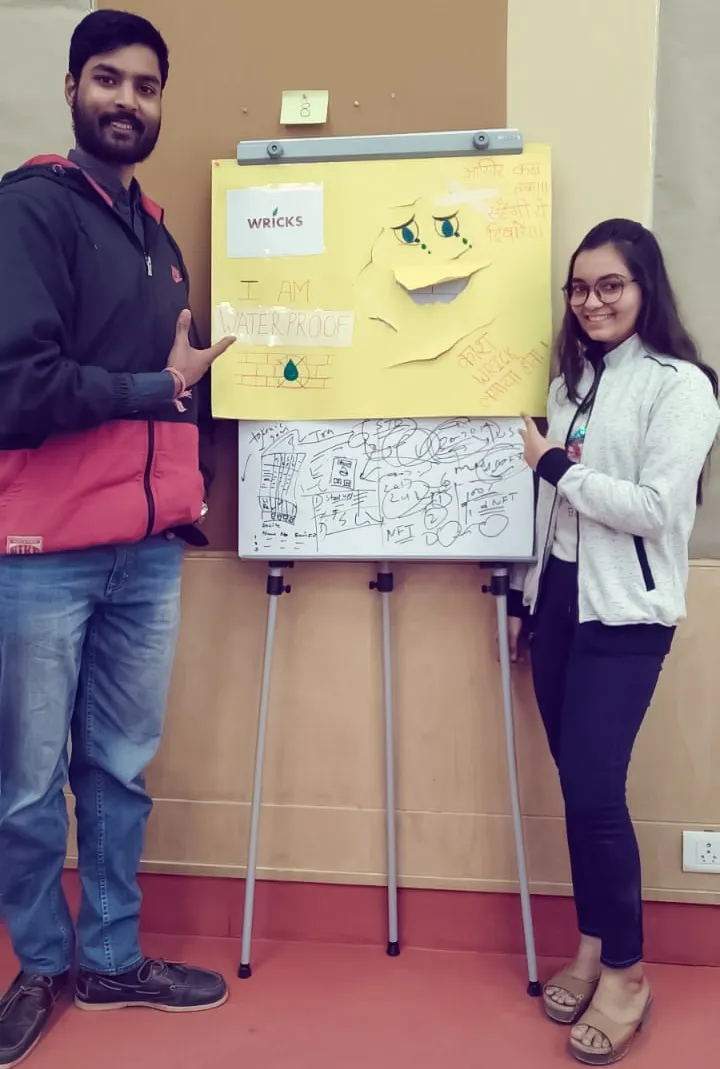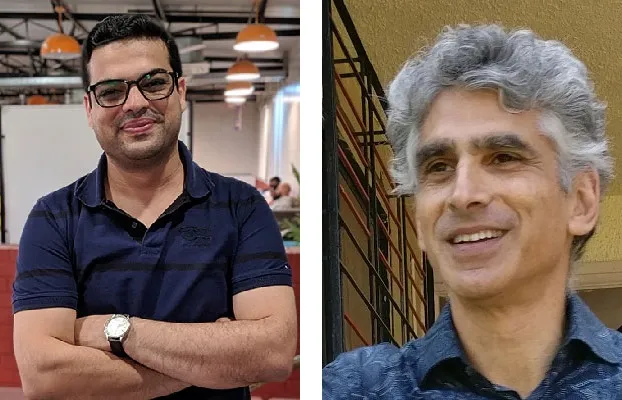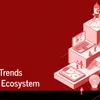From problem to product: entrepreneur journeys of 5 real-estate startups in Brigade Group’s accelerator programme
From the ‘aha’ moment to market traction, these five founders share a wealth of insights for aspiring entrepreneurs.
Brigade Group’s Real Estate Accelerator Programme (REAP) recently picked five startups from 122 applicants as part of its ninth cohort (see YourStory’s REAP profile here). Having successfully completed two jury rounds, the startups will go through an 18-week programme of mentorship and capacity building.
“In the past, REAP startups have seen an increase of over 150 percent YoY growth in revenue and 42 percent of the startups have raised funding within 12 months of graduating,” according to Nirupa Shankar, Director, Brigade REAP.
The five startups are MetroGuild (marketing relationships), (on-demand workspaces), Angirus (‘green’ building materials), Strawcture (‘green’ bio-panels), and Vision Earthcare (wastewater rejuvenation).
In this article, founders share perspectives on the problem they are solving, traction so far, COVID-19 impact, expectations from REAP, and tips for aspiring entrepreneurs.
Spotting the problem
“As I turned an entrepreneur, I faced a problem in getting access to spaces to have meetings and to work in between meetings, across multiple localities of Chennai,” explains Shyam Sundar, Founder of GoFloaters, in a chat with YourStory.He launched his startup in 2017 to solve this problem of lack of access to on-demand work and meeting spaces.
“Office real estate is expensive, inflexible, and a liability many times. COVID-19 has proven that you do not need to have an office 365 days a year to get work done,” he observes. With talent migrating to Tier II and III cities, companies need to embrace and harness a distributed workplace model.
“Living in a village for 13 months in 2017 and witnessing stubble burning made me realise that this is a huge untapped resource. Straw can be a raw material for making engineered panels/boards that are not only sustainable but thermally and acoustically superior to traditional materials,” explains Shriti Pandey, Founder of Strawcture.
The startup is also addressing the issue of the embodied carbon footprint of building materials. “To make building materials green, we are using the circular economy principle and use raw materials that are renewable at the end of their lifecycle,” she says.

Chandrashekar Shankar (L), Shriti Pandey (R)
Lokesh Puri Goswami, Founder of Angirus, is tackling the problems of waste materials and pollution in India via green solutions for making bricks. “Today, brick kilns are the second-largest source of air pollution in India, and they consume millions of tons of soil, water, and coal,” he observes.
The Indian brick industry is the second-largest industry globally, with more than two lakh brick manufacturers. “But the industry is highly unorganised and non-mechanised. It only operates for seven or eight dry months a year,” he adds. Indian cities also generate waste from construction and demolition, and plastics.
“As a civil engineering student, we wanted to test these wastes in building material, and we came up with our first brick prototype in 2018,” Lokesh explains. The startup’s green and sustainable products now help tackle waste management, while also helping brick manufacturers improve the value chain.
Another startup in the REAP cohort is in a related space. “We enable wastewater recycling using nature-based solutions. We spotted it by observing the carbon cycle, which revealed that water is a biological desert and soil is the repository of dead organics,” explains Chandrashekar Shankar, Founder of VisionEarthcare.
Metroguild aims to improve the online and offline selling process for real estate developers and agents. “There are too many channels, CRMs are too cumbersome, and marketing is getting harder and competitive,” according to Cyrus Irani, Co-founder of MetroGuild. It now has 45 customers in the developer and agent segments.
Traction
The founders also shared updates on their current business status. For example, Chandrashekar of VisionEarthcare claims they have 150 MLD (Million Liters per Day) of projects under management, serving close to 1.5 million people across India.
“We demonstrated that with our system, real estate entities will be able to improve the sale value of projects by ensuring sustainability and water security,” he says. The startup can also help industries with their wastewater recycling systems for industries.
Shyam of GoFloaters says they now have 1,500+ spaces across 15 cities. “We have 10,000+ users who have used the platform to get a workspace or meeting space. Hundreds of startups and SMBs are using GoFloaters to provide their employees with the flexibility to work near home,” he adds.
In two years of commercial operation, Strawcture claims to have used more than 1,50,000 sqft of panels for various application such as walling, ceiling, furniture, and doors. “We generated a revenue of more than Rs 3 crore in two years and we have saved more than 500 tonnes of CO2 by using straw instead of having it being burnt,” explains Shriti of Strawcture.
“We have been funded with grants of Rs 20 lakh – from AICTE, under Smart India hackathon, from IIT Madras under Carbon Zero challenge, from Centre for Youth, PVR Nest, and Plan India,” Lokesh of Angirus says.
REAP benefits
The startups hope to benefit from the REAP programme in several ways. Chandrashekar of VisionEarthcare hopes REAP can help improve understanding of developers’ mindsets, create deeper business linkages with the real estate sector, and improve visibility.
“REAP will provide us with a platform that will create credibility for our solution in the real estate industry. Their networks of architects and designers will help in fine-tuning product-market fit, strategising on where to focus initially, and subsequent scaling and fundraising,” says Shriti of Strawcture.
“Operating a startup is a bit challenging, especially for very young entrepreneurs like us,” admits Lokesh of Angirus. The REAP programme can help validate the business model and build market strategies, leading to investor access.
Shyam of GoFloaters is looking forward to working with REAP to fine-tune his business and revenue model, connect with businesses, and get support with fundraising. MetroGuild is also looking for deeper domain knowledge, capital raise, and customer connects.

Lokesh Puri Goswami (L), Angirus
Pandemic impacts
The COVID-19 crisis adversely affected the startups, but also opened new avenues of opportunity for resilient founders. For example, during the pandemic, MetroGuild built up a WFH sales team and created its own embedded video-calling solution.
“When the pandemic hit us in March 2020, we had four to five projects in hand and they all got shut. We had to stop all work for two months due to complications arising from social distancing during installation,” recalls Shriti of Strawcture.
This break led the startup to pivot and focus on the healthcare infrastructure. “In August, we built a COVID-19 hospital and now have two more clients who are expanding their hospitals,” she says. The hospitals use Strawcture’s durable and thermally insulated products, which help faster construction.
“We also up-skilled our carpenters to train them to be site supervisors. So during the pandemic, we can get work executed by smaller teams,” Shriti adds.
“Due to COVID-19, it was difficult for us to procure our raw material and work physically on the technology, leading to delays and extended timelines,” recalls Lokesh of Angirus. But they used the time to refine and modify the technology, which was validated after the lockdown.
“The pandemic did affect us as the workspaces had to be shut down,” laments Shyam of GoFloaters. “At the same time, a new opportunity has risen from it. Companies of all sizes are now embracing hybrid remote working,” he adds. The startup has pivoted now to a B2B ‘Work From Anywhere Platform’ to help companies implement hybrid remote working.
“There were some initial cash flow issues but we have been able to address them by working with our employees and vendors,” says Chandrashekar of VisionEarthcare. The online presence helped to better scale outreach after the pandemic.
Startup advice
The founders also share a range of tips for aspiring entrepreneurs. Chandrashekar of VisionEarthcare advises founders to focus on the ‘3 Hs’ to survive the ups and downs of business – honesty, hunger for growth, and hard work. “A satisfied customer is the biggest asset of a business,” he adds.
“Focus on the problem you are solving and not the solution that you have come up with,” advises Shyam of GoFloaters. Changing situations may lead to pivots as well.
“Spend a lot of time and energy on hiring only the best talent for your team. Use flexible talent wherever possible,” he adds.
“Startups are more of a kind of experiment and not rocket science. It's process-oriented, where you need to analyse your results and work based on them. No right product was built in a single shot,” observes Lokesh of Angirus.
“Don't get emotionally attached to your product. Keep user reviews at the centre and keep on iterating till it finds value in the user’s eye,” he advises. “Always be rational, not emotional,” he adds. Curiosity and market exploration also help.

Arif Amirani and Cyrus Irani (R), MetroGuild
“Focus on solving problems that customers face and are willing to pay to fix. Persistence, grit, and adaption are a must. In your team members, look for Can Do attitude, innovation, and passion,” Cyrus of Metroguild advises.
“Feedback in the initial period from your customers is the key to finding product-market fit. Keep looking for it,” urges Shriti of Strawcture.
Grants and prize money in the initial years helps overcome resource shortages and builds credibility. “Working with limited resources helps you build a resilient, lean business model,” she adds.
“Offer a solution rather just a product. Our clients often come back to us because our service and execution builds trust and transparency, which is rare in the Indian construction domain,” Shriti signs off.
Investor perspectives
The REAP team and startup investors share some of their observations as well on the market potential for this sector. “I’m reasonably confident that in the coming decade, we will see the emergence of quite a few scaled proptech startups from India,” says Samir Kumar, MD, Inventus Capital India, and REAP jury member.
“Brigade REAP has six pillars of engagements with startups that are on-boarded. They include product, technology, business model, people, go to market and scale,” explains John Kuruvilla, Chief Mentor, Brigade REAP.
Jury members this time included M.R. Jaishankar, CMD Brigade Group; Samir Kumar, MD, Inventus Capital; Vipul Roongta, MD, HDFC Capital; Sanjay Mehta, Founder and Partner, 100x.VC; Ram Chandnani, MD, Advisory and Transaction Services, CBRE; Kumar Vembu, CEO, GoFrugal Technologies; and Mohan Parvatikar, Director, Brigade REAP.
"Real estate is the largest asset class by far, but it is still in the early stages of technology adoption. While I have been investing in diverse sectors, prop-tech as a sector is definitely one to watch out for,” observes Sanjay Mehta, Founder and Partner, 100X.VC.
Edited by Kanishk Singh





![[Funding alert] Four proptech startups from Brigade REAP's portfolio raise undisclosed amount](https://images.yourstory.com/cs/2/b87effd06a6611e9ad333f8a4777438f/Untitled-1-1592981506596.png?fm=png&auto=format&h=100&w=100&crop=entropy&fit=crop)
![[Year in Review 2020] Idea, implementation, investment: 50 quotes by investors on startup opportunities and founder relations](https://images.yourstory.com/cs/5/80396100-2d6d-11e9-aa97-9329348d4c3e/Startups1565934694157.png?fm=png&auto=format&h=100&w=100&crop=entropy&fit=crop)
